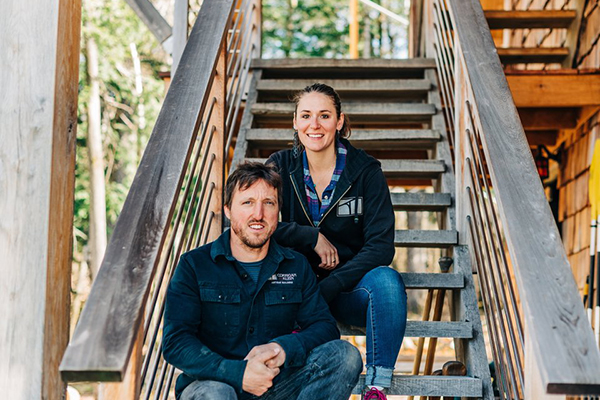“It’s been an extremely positive experience. Everybody’s working together in the spirit of cooperation, understanding and brainstorming,” said Bob Ackland, one of the two Warren Select Board members who serve on a tri-town committee negotiating and crafting the documents necessary for The Valley towns to adopt a local option tax (LOT).
The Warren, Waitsfield and Fayston Select Boards each appointed two board members to serve on the tri-town negotiating committee this spring. Committee members are crafting and vetting the terms of a memorandum of understanding for voters in the towns to adopt a local option tax as well as the bylaws that spell out how funds collected will be used and dispersed.
The LOT proposal calls for the three towns to adopt a 1 percent local option tax on rooms, meals, alcohol and the retail sales that are already subject to Vermont’s sales tax. The proposal calls for funds to be used for housing, transportation, recreation, community projects and marketing The Valley. A local LOT would raise $700,000. The money will be distributed through a grant process by a commission made up of two representatives appointed by each select board plus a chair appointed by the Mad River Valley Planning District (MRVPD).
Ackland said that the work of the tri-town committee to craft the documents has been very rewarding.
“At these meetings, you feel like you’ve accomplished something. Everybody is participating. The work is not dominated by any one person,” Ackland said.
The level of dialogue is impressive,” Jared Cadwell, Fayston Select Board chair and a member of the tri-town negotiating committee, told the MRVPD steering committee.
Ackland said that the starting point for the documents they’re drafting was the memorandum of understanding that was used in 1985 when voters in the three Valley towns voted to create the Mad River Valley Planning District.
“We used that as a format and have been going through it line by line, discussed it, made changes and then brought those changes back to the MRVPD subcommittee,” he said.
The MRVPD subcommittee includes members of the MRVPD steering committee who have created the LOT proposal.
One of the issues that the tri-town negotiating committee spent a lot of time discussing was whether or not to include a sunset clause for the LOT so that voters would reauthorize it after a specific time period.
“We went around and around with this and it’s a good example of how productive this process has been. We agreed not to include a sunset clause because there’s a process for towns to withdraw. We changed it once, came back and changed it again and went back to where we started from,” Ackland said.
“We had a full-blown discussion with everybody participating and we’ve been making unanimous decisions. It’s been a very healthy process,” he added.
Two members of the Waitsfield Select Board, Sal Spinosa and board chair Paul Hartshorn, have been vocal opponents of an LOT and have asked their reps to the tri-town negotiating committee, Darryl Forrest and Kellee Mazer, to request a split where the town would retain some portion of the LOT funds it raised.
“The great thing about this is that from the Warren and Fayston perspective, both are behind the overall intent of what the MOU is trying to achieve. There have been issues with Waitsfield and Kellee and Darryl have brought them to the table and we’ve talked through those things,” Ackland said.
“Everybody gets it, that we’re a community of three towns and there’s no parochialism at all at the table. I was worried about that going into this, but sitting at the table together really enhances the sense of being one community,” he noted.







